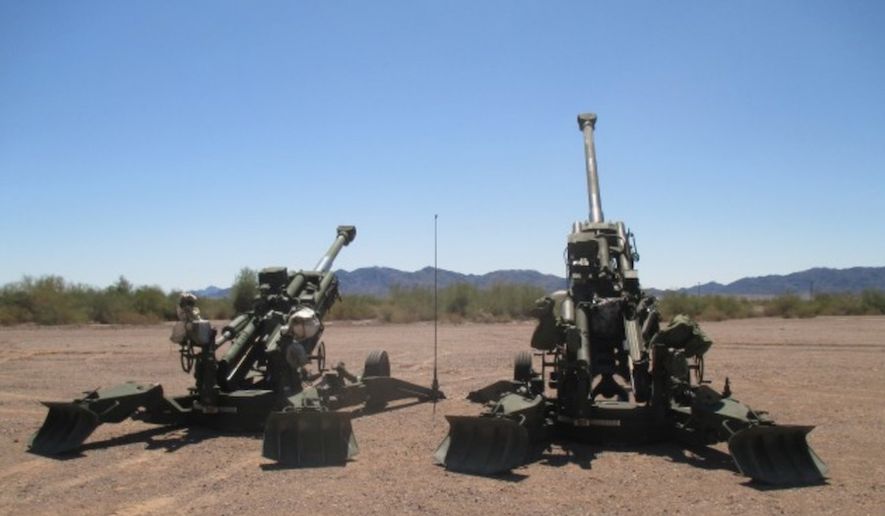A “howitzer shoot-off” early next year at the Yuma Proving Ground in Arizona could decide which mobile artillery system the Army picks to keep up with its fast-moving Stryker brigade combat teams.
Several foreign arms manufacturers are lining up to offer their cannons for consideration.
The replacement for the towed artillery now used by the Stryker units must both be more lethal and survivable on the battlefield, Army officials said.
Serbia has been invited to submit their NORA B-52 wheeled system to the competition while Israel’s Elbit Systems will be demonstrating their Autonomous Truck Mounted Ordnance System (ATMOS) Iron Sabre mobile howitzer.
Officials with Elbit Systems tout the ATMOS Iron Sabre as a “proven, fielded system” from a family of howitzers that have served its customers for more than 30 years.
“U.S. Army Fires needs solutions that can keep up with the [Stryker teams], can shoot faster and farther and, most importantly, are low-risk and ready now,” said Ridge Sower, the company’s vice president of ground combat and precision targeting.
The Serbian company Yugoimport said their NORA B-52 will be a formidable competitor for the lucrative contract.
“The NORA was designed to combat the battlefield doctrine of maneuver by fire employed by nations with large armored and artillery forces,” said Marc Morales, president of Global Ordnance, which is partnering with Yugoimport in the project. “Over the past few years, the NORA has been undergoing modernizations and upgrades that are sure to get the attention of the U.S. Army. The upgraded version provides enhanced mobility, a larger chamber, automation and speed.”
BAE Systems Bofors of Sweden joined the competition with its ARCHER mobile howitzer, which is already in service with their army.
“ARCHER is a mature, proven system that can quickly get into the fight and strike enemy targets at long ranges, with a high rate of fire and very fast displacement times and is made for combat against large power adversaries,” said Chris King’s BAE Systems’ director of business development. “With a fully automated system, soldiers can execute their mission with minimal physical exertion and time while remaining under cover in the armored cabin.”
The actual value of the contract wasn’t immediately known, but Army officials said they will make their selection based on proposals that are “the most advantageous and represent the best value” to the government.
• Mike Glenn can be reached at mglenn@washingtontimes.com.




Please read our comment policy before commenting.